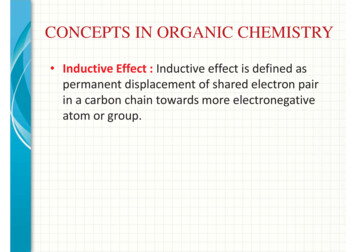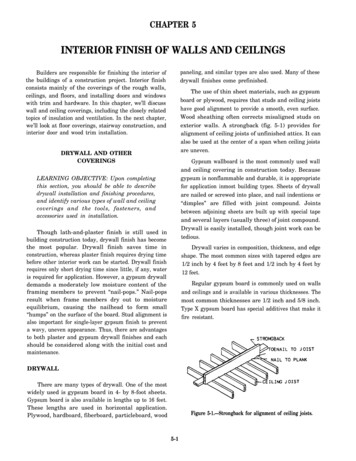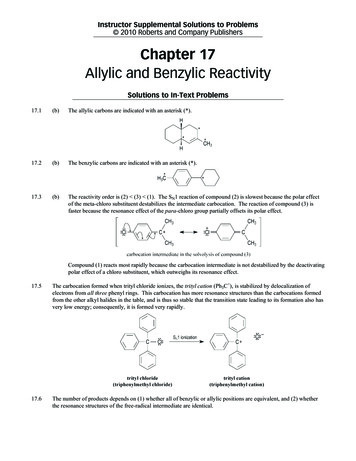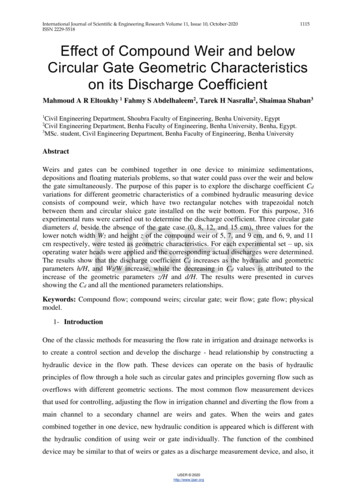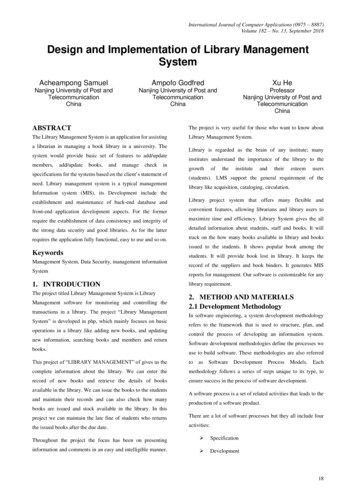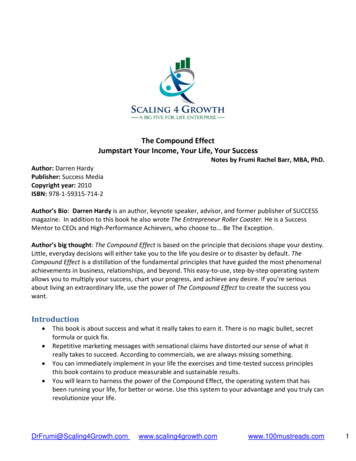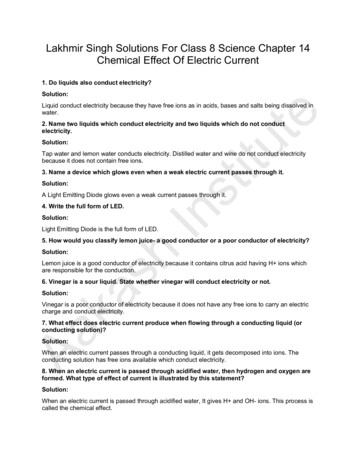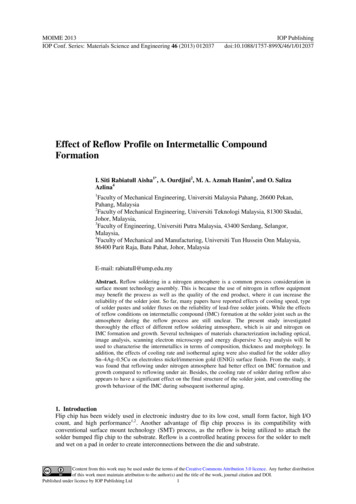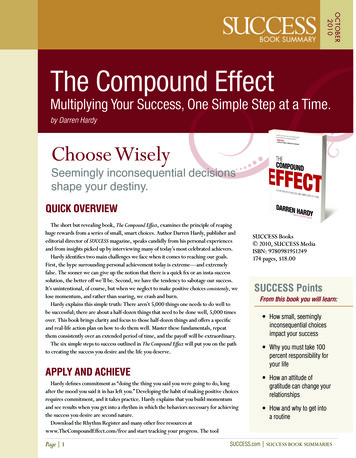
Transcription
OCTOBER2010The Compound EffectMultiplying Your Success, One Simple Step at a Time.by Darren HardyChoose WiselySeemingly inconsequential decisionsshape your destiny.QUICK OVERVIEWThe short but revealing book, The Compound Effect, examines the principle of reapinghuge rewards from a series of small, smart choices. Author Darren Hardy, publisher andeditorial director of SUCCESS magazine, speaks candidly from his personal experiencesand from insights picked up by interviewing many of today’s most celebrated achievers.Hardy identifies two main challenges we face when it comes to reaching our goals.First, the hype surrounding personal achievement today is extreme—and extremelyfalse. The sooner we can give up the notion that there is a quick fix or an insta-successsolution, the better off we’ll be. Second, we have the tendency to sabotage our success.It’s unintentional, of course, but when we neglect to make positive choices consistently, welose momentum, and rather than soaring, we crash and burn.Hardy explains this simple truth: There aren’t 5,000 things one needs to do well tobe successful; there are about a half-dozen things that need to be done well, 5,000 timesover. This book brings clarity and focus to those half-dozen things and offers a specificand real-life action plan on how to do them well. Master these fundamentals, repeatthem consistently over an extended period of time, and the payoff will be extraordinary.The six simple steps to success outlined in The Compound Effect will put you on the pathto creating the success you desire and the life you deserve.SUCCESS Books 2010, SUCCESS MediaISBN: 9780981951249174 pages, 18.00SUCCESS PointsFrom this book you will learn:APPLY AND ACHIEVEHardy defines commitment as “doing the thing you said you were going to do, longafter the mood you said it in has left you.” Developing the habit of making positive choicesrequires commitment, and it takes practice. Hardy explains that you build momentumand see results when you get into a rhythm in which the behaviors necessary for achievingthe success you desire are second nature.Download the Rhythm Register and many other free resources atwww.TheCompoundEffect.com/free and start tracking your progress. The toolPage1SUCCESS.com How small, seeminglyinconsequential choicesimpact your success Why you must take 100percent responsibility foryour life How an attitude ofgratitude can change yourrelationships How and why to get intoa routineSUCCESS BOOK SUMMARIES
The Compound Effectwill serve as a visual reminder and help you stay focused onthe desired outcome and committed to your decision.It’s time someone told it to you straight. You’ve beenbamboozled for too long. There is no magic bullet,secret formula, or quick fi x. You don’t make 200,000a year spending two hours a day on the Internet, lose 30pounds in a week, rub 20 years off your face with a cream, fi xyour love life with a pill, or fi nd lasting success with any otherscheme that is too good to be true. It would be great if youcould buy your success, fame, self-esteem, good relationships,and health and well-being in a nicely clam-shelled package atthe local Walmart. But, that’s not how it works.We are constantly bombarded with increasingly sensationalclaims to get rich, get fit, get younger, get sexier allovernight with little effort for only three easy payments of 39.95. These repetitive marketing messages have distortedour sense of what it really takes to succeed. We’ve lost sightof the simple but profound fundamentals of what it takes tobe successful.I’m tired of it. I won’t sit back and watch these recklessmessages derail people any longer. I wrote this book to takeyou back to basics. I’m going to help you clear the clutter andbring focus to the core fundamentals that matter.My personal experience has proven that, no matter whatyou learn or what strategy or tactic you employ, success comesas the result of the operating system of the Compound Effect.The Compound Effect is the principle of reaping hugerewards from a series of small, smart choices. What’s mostinteresting about this process to me is that, even thoughthe results are massive, the steps, in the moment, don’tfeel significant. Whether you’re using this strategy forimproving your health, relationships, fi nances, or anythingelse for that matter, the changes are so subtle, they’re almostimperceptible.Most people get tripped up by the simplicity of theCompound Effect. For instance, they quit after the eighthday of running because they’re still overweight. Or, they stopmaking contributions to their IRA after a few years becausethey could use the cash—and it doesn’t seem to be adding upto much anyway. What they don’t realize is that these small,seemingly insignificant steps completed consistently over timewill create a radical difference.Page2The essence of the Compound Effect is this:Small, Smart Choices Consistency Time RADICAL DIFFERENCECHOICESOur choices can be our best friend or our worst enemy. Theycan deliver us to our goals or send us orbiting into a galaxy far,far away. Think about it. Everything in your life exists becauseyou first made a choice about something. Choices are at the rootof every one of your results. Each choice starts a behavior thatover time becomes a habit.It’s the little things thatinevitably and predictably derailyour successIn essence, you make your choices, and then your choicesmake you. Every decision, no matter how slight, alters thetrajectory of your life—whether or not to go to college, whoto marry, to have that last drink before you drive, to indulge ingossip or stay silent, to make one more prospecting call or callit a day, to say I love you or not. Every choice has an impact onthe Compound Effect of your life.Your biggest challenge isn’t that you’ve intentionally beenmaking bad choices. Heck, that would be easy to fi x. Yourbiggest challenge is that you’ve been sleepwalking through yourchoices. Half the time, you’re not even aware you’re makingthem! Our choices are often shaped by our culture andupbringing. They can be so entwined in our routine behaviorsand habits that they seem beyond our control. For instance,have you ever been going about your business, enjoying yourlife, when all of sudden you made a stupid choice or series ofsmall choices that ultimately sabotaged your hard work andmomentum, all for no apparent reason? You didn’t intend tosabotage yourself, but by not thinking about your decisions—weighing the risks and potential outcomes—you found yourselffacing unintended consequences. Nobody intends to becomeobese, go through bankruptcy, or get a divorce, but often (ifnot always) those consequences are the result of a series ofsmall, poor choices.SUCCESS.comSUCCESS BOOK SUMMARIES
The Compound EffectFor most of us, it’s the frequent, small, and seeminglyinconsequential choices that are of grave concern. I’m talkingabout the decisions you think don’t make any difference atall. It’s the little things that inevitably and predictably derailyour success. Whether they’re bone-headed maneuvers,no-biggie behaviors, or are disguised as positive choices(those are especially insidious), these seemingly insignificantdecisions can completely throw you off course because you’renot mindful of them. You get overwhelmed, space out, andbecome unaware of the little actions that take you way offcourse.The Compound Effect works, all right. It always works.But in this case it works against you because you’re doing you’re sleepwalking. For instance, you inhale a soda and bagof potato chips and suddenly realize only after you polishedoff the last chip that you blew an entire day of healthyeating—and you weren’t even hungry. You get caught up andlose two hours watching mindless TV—scratch that, let’s giveyou some credit and make it an educational documentary—before realizing you spaced on preparing for an importantpresentation to land a valuable client. You blurt out a knee-jerklie to a loved one for no good reason, when the truth wouldhave worked just fi ne. What’s going on? You’ve allowedyourself to make a choice without thinking.And as long as you’re making choices unconsciously, youcan’t consciously choose to change that ineffective behaviorand turn it into productive habits. It’s time to WAKE UP andmake empowering choices.OWNING 100 PERCENTWe are all self-made men and women, but only thesuccessful take credit for it. I was eighteen when I wasintroduced to the idea of personal responsibility, and theconcept completely transformed my life.I quickly understood how this concept could transformevery area of my life. If I always took 100 percent responsibilityfor everything I experienced—completely owning all of mychoices and all the ways I responded to whatever happenedto me—I held the power. Everything was up to me. I wasresponsible for everything I did, didn’t do, or how I respondedto what was done to me.I know you think you take responsibility for your life. I’ve yetPage3to ask anybody who doesn’t say, “Of course, I take responsibilityfor my life.” But then you look at how most people operatein the world; there’s a lot of finger pointing, victimhood,blaming, and expecting someone else or the government tosolve their problems. If you’ve ever blamed traffic for being late,or decided you are in a bad mood because of something yourkid, spouse, or co-worker did, you’re not taking 100 percentpersonal responsibility. You arrived late because the printer wasbusy? Maybe you shouldn’t have waited until the last minute?Co-worker messed up the presentation? Shouldn’t you havedouble-checked it yourself before delivering it? Not getting alongwith your unreasonable teen? There are a countless fantasticbooks and classes to help you learn how to deal.You alone are responsible for what you do, don’t do, or howyou respond to what’s done to you. This empowering mindsetrevolutionized my life. Luck, circumstances, or the rightsituation wasn’t what mattered. If it was to be, it was up to me.I was free to fly. No matter who was elected president, howbadly the economy tanked, or what anybody said, did, or didn’tdo, I was still 100 percent in control of me. Through choosing tobe officially liberated from past, present, and future victimhood,I’d hit the jackpot. I had the unlimited power to controlmy destiny.THANKSGIVING YEAR-ROUNDWe’re particularly gifted in the finger-pointing departmentwhen it comes to our romantic relationships—you know, wherethe other person is the one who needs to change. Let me explainhow something extremely simple, taking less than five minutes aday, can literally change your life.A few years back, a friend of mine was complaining abouthis wife. From my observation, she was a terrific lady, and hewas lucky to have her. I told him as much, but he continued topoint out all the ways she was responsible for his unhappiness.That’s when I shared an experience that had literally changed mymarriage and me.One Thanksgiving, I decided to keep a Thanks Giving journalfor my wife. Every day for an entire year I logged at least onething I appreciated about her—the way she interacted with herfriends, how she cared for our dogs, the fresh bed she prepared,a succulent meal she whipped up, or the beautiful way she styledher hair that day—whatever. I looked for the things my wifeSUCCESS.comSUCCESS BOOK SUMMARIES
was doing that touched me, or revealed attributes, characteristics,or qualities I appreciated. I wrote them all down secretly for theentire year. By the end of that year, I’d filled an entire journal.When I gave it to her the following Thanksgiving, she cried,calling it the best gift she’d ever received. (Even better than theBMW I’d given her for her birthday!) The funny thing was thatthe person most affected by this gift was me. All that journalingforced me to focus on my wife’s positive aspects. I was consciouslylooking for all the things she was doing “right.” That heartfeltfocus overwhelmed anything I might have otherwise complainedabout. I fell deeply in love with her all over again (maybe evenmore than ever, as I was seeing subtleties in her nature andbehavior instead of her more obvious qualities). My appreciation,gratitude, and intention to find the best in her was something Iheld in my heart and eyes each day. This caused me to show updifferently in my marriage, which, of course, made her responddifferently to me. Soon, I had even more things to write in myThanks Giving journal! As a result of choosing to take a merefive minutes every day or so to document all the reasons why Iwas grateful for her, we experienced one of the best years of ourmarriage, and it’s only gotten better.After I shared my experience, my friend decided to keepa Thanks Giving journal about his wife. Within the first fewmonths, he completely turned around his marriage. Choosing tolook for and focus on his wife’s positive qualities changed his viewof her, which changed how he interacted with her. As a result, shemade different choices about the way she responded to him. Thecycle perpetuated. Or, shall we say, compounded.SUCCESS OR FAILURE IS A HABITAristotle wrote, “We are what we repeatedly do.” Websterdefines habit this way: “An acquired mode of behavior that hasbecome nearly or completely involuntary.” If you’ve been livingon autopilot and allowing your habits to run you, I want you tounderstand why. And I want you to let yourself off the hook. Afterall, you’re in good company. Psychological studies reveal that 95percent of everything we feel, think, do, and achieve is a resultof a learned habit! We’re born with instincts, of course, but nohabits at all. We develop them over time. Beginning in childhood,we learned a series of conditioned responses that led us to reactautomatically (as in, without thinking) to most situations.In chapter three I outline specific strategies on how to uproot,Page4permanently, the poor habits that continually take you off courseand give you exact guidelines on how to, identify first, then installthe success habits you need to take you in the direction of yourgoals, dreams and ambitions. But I will outline for you here thebeginning key—awareness.I’m about to walk you through one of the single greateststrategies I’ve ever used in my personal development. Thisstrategy helps me take control of the choices I make throughoutthe day, causing everything else to fall into place, and leadingto behaviors and actions that shepherd my habits into line likedutiful, loyal minions.I learned the power of tracking the hard way, after I’d actedlike a colossal idiot about my finances. Back in my early twenties,when I was making a lot of money selling real estate, I met withmy accountant. “You owe well over 100,000 in taxes,” he said.“What?!” I said. “I don’t have that kind of cash just lying around.”“Why not?” he asked. “You collected several times that;certainly you set aside the taxes that would be due on thatmoney.” “Evidently I didn’t,” I said.“Where did the money go?” he asked. “I don’t know,” I said, asobering confession, for sure. The money had passed through myhands like water, and I hadn’t even noticed!Then my accountant did me a great favor. “Son,” he said,looking me dead in the eyes, “you’ve got to get a grip. I’ve seenthis a hundred times before. You’re spending money like adrunken fool, and you don’t even know how to account for it.That’s stupid. Stop it. You are now seriously in the hole. Youhave to earn more money that you’ll owe additional taxes on justto pay for your back taxes. Continue this, and you’ll dig yourfinancial grave with your own wallet.” I immediately got themessage.Here’s what my accountant had me do: carry a small notepadin my back pocket, and write down every single cent I spent forthirty days. Whether it was a thousand dollars for a new suit orfifty cents for air to fill up my tires, it all had to go down on thenotepad. Wow. This brought an instantaneous awareness of themany unconscious choices I was making that resulted in moneypouring out of my pockets. Because I had to log everything,I resisted buying some things, just so I didn’t have to take out thenotepad and write it in the dang book!Keeping a money log for thirty days straight cemented a newawareness in me, and created a completely new set of choicesand disciplines around my spending. And, since awarenessSUCCESS.comSUCCESS BOOK SUMMARIES
The Compound Effectand positive behaviors compound, I found myself being moreproactive with money in general, putting away more forretirement, finding areas to save where there was clear waste,and enjoying the fun quotient of money—“play money”—all themore. When I did consider shelling out for entertainment, I didso only after a long pause.This tracking exercise changed my awareness of how Irelated to my money. It worked so well, in fact, that I’ve usedit many times to change other behaviors. Tracking is my go-totransformation model for everything that ails me. Over the yearsI’ve tracked what I eat and drink, how much I exercise, howmuch time I spend improving a skill, my number of sales calls,even the improvement of my relationships with family, friends,or my spouse. The results have been no less profound than mymoney-tracking wake-up call.Since your outcomes are all a result of your moment-tomoment choices, you have incredible power to change your lifeby changing those choices. Step by step, day-by-day, your choiceswill shape your actions until they become habits, where practicemakes them permanent.ROUTINES AND RHYTHMSA routine is something you do every day without fail, so thateventually, like brushing your teeth or putting on your seatbelt,you do it without conscious thought. Of all the high-achievers andbusiness owners I’ve worked with, I’ve seen that, along with goodhabits, each has developed routines for accomplishing necessarydaily disciplines. It’s the only way any of us can predictably regulateour behavior. There simply isn’t any way around it. A daily routinebuilt on good habits and disciplines separates the most successfulamong us from everyone else. A routine is exceptionally powerful.Once your daily disciplines have become a routine, you wantthe succession of those steps to create a rhythm. I want to sharewith you something I created for myself that helps me keep trackof the rhythm of a new behavior. I call it my “Rhythm Register,”and I think you’ll find it extremely helpful. If you want to drinkmore water or take more steps each day or acknowledge yourspouse more affectionately—whatever behavior you’ve decided youneed to move toward your goal—you’ll want to track it to makesure you’re establishing a rhythm. You can download the system(and a number of other extremely useful tools) for free at www.TheCompoundEffect.com/free.Page5The essence of the CompoundEffect is this:Small, Smart Choices Consistency Time RADICAL DIFFERENCEI want to offer a word of caution: When people get started ina new endeavor, they almost always overdo it. Of course, I wantyou to feel excited about setting up a rhythm for success, but youneed to find a program that you can absolutely, positively do in thelong term without renegotiation. I don’t want you thinking of therhythms you can do for this week, month, or even the next ninetydays; I want you to think about what you can do for the rest ofyour life. The Compound Effect—the positive results you want toexperience in your life—will be the result of smart choices (andactions) repeated consistently over time.As a society we don’t seem to lack the ambition to start.We start new diet programs, join gyms and begin all sorts ofNew Year’s resolutions. What most people lack is the followthrough. Not just starting, but staying. Not just beginning, butcontinuing long enough to have the Compound Effect kickin and catapult them to extraordinary results, making visiblethe accumulated effect of the many seemingly inconsequentialchoices, behaviors and habits performed over time. The key to allthis is consistency.If there’s one discipline that gives me a competitive advantage,it’s my ability to be consistent. Nothing kills the Compound Effectquicker and with more certainty than a lack of consistency. Evengood, passionate, and ambitious people with good intentionscan fall short when it comes to consistency, and predictablyfind themselves at ground zero over and over again and wonderwhy. Winning the race is all about pace. Be the tortoise—theperson who, given enough time, will beat virtually anybodyin any competition as a result of positive habits and behaviorsapplied consistently.I challenge you to adopt these philosophies in your own life—inyour daily habits, disciplines and routines. Giving a little moretime, energy, or thought to your efforts won’t just improve yourresults; it will multiply them.SUCCESS.comSUCCESS BOOK SUMMARIES
The Compound EffectACTION STEPSGet more out of this SUCCESS BookSummary by putting what you’ve learnedinto action. Here are a few questions andthoughts to help you get started.1. Identify three choices, maybe even unconscious ones,that might be moving you away from your goals.2. Where in your life are you not taking 100 percentresponsibility? Write down three things you can startdoing right now to take responsibility for the outcomesof your life.3. Pick an area of your life you are frustrated with. For atleast three weeks journal all the goods things you canabout this area.4. Start tracking at least one behavior you’d like to changeor improve.5. Plan for success. Schedule a regular time for thebehaviors you want to incorporate into your life (e.g.,exercise, date night, listening to personal-developmentaudios), and make doing them part of your daily andweekly routine.6. List three areas of life in which you are notconsistent enough.7. Go to www.TheCompoundEffect.com/free to downloadthe Rhythm Register to help you permanently cementthe success disciplines you need in order to achieveyour greatest ambitions.About the AuthorDarren Hardy is the publisher and editorialdirector of SUCCESS magazine. He has been aleader in the personal development industry for 16years, having led two personal-development-basedtelevision networks—The People’s Network (TPN),and The Success Training Network (TSTN).Hardy is a product of the principles he reveals inThe Compound Effect. As an entrepreneur, Darrenwas earning a six-figure income by age 18, more than 1 million a year by age 24, and he owned a companyRecommended Readingproducing 50 million a year in revenue by age 27. HeIf you enjoyed this summary of The CompoundEffect, why not add the book to your personalsuccess library? Here are a few other books youmay enjoy:many large corporations, and serves on the board of7 Strategies for Wealth & Happiness by Jim Rohnhas mentored thousands of entrepreneurs, advisedseveral companies and nonprofit organizations.He is a popular keynote speaker and appearsregularly on national radio and TV shows.No Excuses! The Power of Self-Disciplineby Brian TracyMojo: How to Get It, How to Keep It, How to GetIt Back if You Lose It by Marshall GoldsmithPage6 2010 SUCCESS Media. All rights reserved. Materials may not be reproduced in whole or in partin any form without prior written permission. Published by SUCCESS Media, 200 Swisher Rd., LakeDallas, TX 75065, USA. SUCCESS.com.Summarized by permission of the publisher, SUCCESS Books, 200 Swisher Rd., Lake Dallas, TX75065. The Compound Effect by Darren Hardy. 2010 by SUCCESS Media.SUCCESS.comSUCCESS BOOK SUMMARIES
The Compound Effect Multiplying Your Success, One Simple Step at a Time. by Darren Hardy Recommended Reading If you enjoyed this summary of The Compound Effect, why not add the book to your personal success library? Here are a few other books you may enjoy: 7 Strategies for Wealth & Happi
